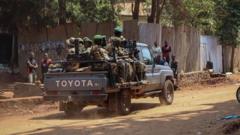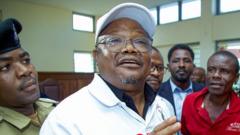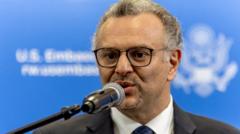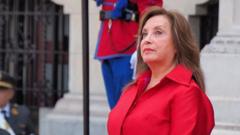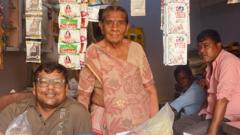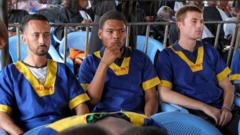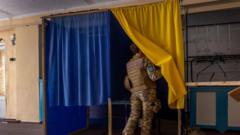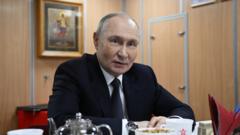In a significant political shift, the Democratic Republic of the Congo's government has implemented a ban on the PPRD, the party of former president Joseph Kabila, citing alleged ties to the M23 rebel faction believed to be occupying significant territories in the eastern region of the country. The ban coincides with Kabila’s recent return from a two-year stay in South Africa, now said to be in Goma, a city controlled by M23. The interior ministry's announcement condemned Kabila for his party's perceived complacency regarding the rebel occupation and accused him of high treason, while ordering the confiscation of his assets. Throughout his presidency, Kabila, who led the country for nearly two decades, faced multiple electoral disputes and political tensions, culminating in his departure in 2023. Upon announcing his return, Kabila expressed intentions to reinvigorate the nation amidst rising instability but left open questions regarding the implications of his party being banned amidst the conflict.
DR Congo Prohibits Ex-President's Political Party Over Rebel Allegations
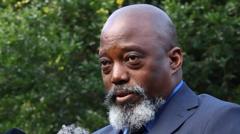
DR Congo Prohibits Ex-President's Political Party Over Rebel Allegations
The Congolese government has taken action against former president Joseph Kabila, banning his political party due to connections with the M23 rebel group.
The M23 conflict traces back to deeper regional dynamics, with international observers particularly noting Rwanda's involvement in the ongoing violence, which has led to a humanitarian crisis and raised concerns about Kabila's resurgence in the political landscape. As tensions continue to rise, the future of DR Congo remains uncertain with calls for Kabila to address the nation looming.
Joseph Kabila’s political history and the complexities of his relationships with Congolese power structures continue to shape the narrative, highlighting the intricate balance between governance and the factional realities on the ground.
Joseph Kabila’s political history and the complexities of his relationships with Congolese power structures continue to shape the narrative, highlighting the intricate balance between governance and the factional realities on the ground.

